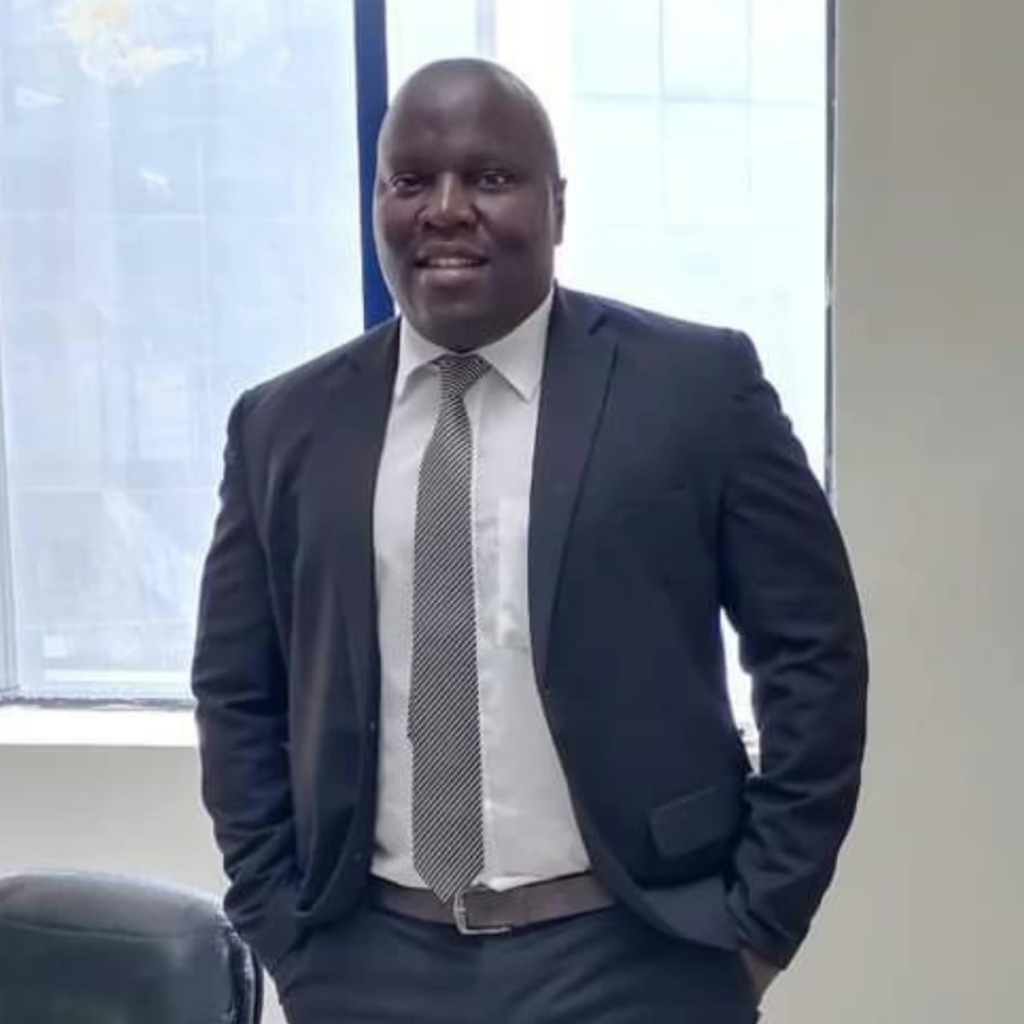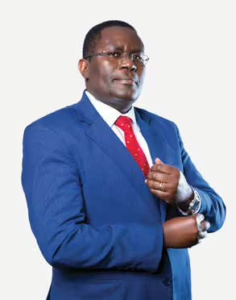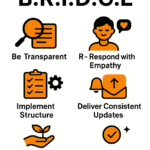Global statistics show that mental health issues are prevalent within the legal profession, yet the stigma around such matters causes many lawyers to suffer in silence, and in extreme cases, even commit suicide. However, Samuel Ochieng Okeyo is among the handful of lawyers brave enough to talk about his battle with mental health.
While his openness has had some negative consequences on his career, he remains steadfast that the conversation should keep going. His goal this Mental Health Awareness Month is that more people will enlighten themselves and do better in supporting those struggling with mental health, especially in the workplace.
Samuel is an Advocate of the High Court of Kenya, excelling in his legal career despite battling one of the most incapacitating mental health disorders, bipolar 1 mood disorder, for a quarter of a century.
Besides his legal practice as an advocate, as the founding partner at Samuel Ochieng and Company Advocates, Samuel is also the Chairperson of Serene Minds Organization, a community-based organization (CBO) that helps people battling mental health disorders countrywide. The organization also engages in public discourse on mental health across various platforms, including this one. Third, Mr Ochieng is also a gospel music artist who goes by the stage name Gospel Dynamite. “I compose music and express myself professing God’s love and my Christian faith.” He shared his journey battling the disease as we mark Mental Health Awareness Month 2025.
A Young Mind in Turmoil: How I Got Diagnosed with Bipolar 1 Mood Disorder
Samuel experienced a normal childhood, growing up in Mathare, where he attended his primary school, and later in Eastleigh, where he attended his secondary school at Nairobi Milimani Secondary School. He qualified for admission to the university, where the then Joint Admission Board (JAB) offered him a position to study Economics and Sociology. He did attend university for the four years over which the course ran. However, his time at the university studying economics coincided with the onset of his bipolar disorder, a condition not many understood at the time, including himself.
“I stayed in school for four years, but I couldn’t graduate because I failed terribly. I failed in 16 courses because I didn’t understand the condition (the math in economics didn’t help either). Samuel was diagnosed with Type 1 Bipolar Disorder in 2000 when he was only 20 years old. “So, I took a two-year break from school, between 2006 and 2008, then I started all over again, studying law at the University of Nairobi (UoN).” Samuel managed to graduate from law school when he got a second chance at pursuing an undergraduate degree. “This time round, I had understood my condition, including how to manage the symptoms. I was self-aware and managed to pass law school as well as to qualify from the Training Program (ATP) at the Kenya School of Law (KSL) before being admitted to the Kenyan bar in 2015.” He started off his career as an in-house counsel before establishing Samuel Ochieng and Company Advocates three years later in 2018.
What is Bipolar Disorder?
While the paragraph above ties Sam’s experience through law school with a neat little bow, battling bipolar 1 disorder is messy. So, what is bipolar disorder? How does it manifest, and how does it affect the patient? Also, what does it take to manage this condition? To better appreciate his journey and to raise awareness of the condition, Samuel defines bipolar disorder for us.
“Bipolar is simply a mood disorder: Sometimes you are happy, elated, or euphoric, and sometimes you are sad/depressed. As the name suggests, when you have bipolar, your moods often oscillate between two extremes (happiness, mania, hypomania. On the one hand, we have mania, hypomania. Some of the misleading assumptions about the disorder are that it’s a form of madness or brain damage; that is not the case.”
Samuel highlights that the bipolar disorder diagnosis is constantly evolving. For starters, the condition was known as manic depression when he was diagnosed 25 years ago. “Bipolar is a recent term, and they’re moving from the word bipolar to bipolar spectrum. Nowadays, they describe bipolar disorder as a disorder of energy due to the dysregulated energy expenditure. When you’re high, you have a lot of energy, are super creative, and act sociably. However, on the other hand, when you are low, you experience depression symptoms such as sadness, difficulty getting out of bed, or even performing simple self-hygiene tasks like brushing your teeth or taking a shower. You may also experience suicidal ideation (suicidal thoughts).”
Samuel adds that there are three types of bipolar disorder:
- Bipolar 1 (the most severe form of bipolar disorder, characterized by hypermania- overexcited/euphoric/extreme energy)
- Bipolar 2 (Characterized by hypomania (elation, happiness) and depression; no risk of losing your mind)
- Cyclothymic Disorder (Characterized by mood swings, but slightly exaggerated compared to normal mood swings. Psychiatrists must monitor your mood pattern for two years before confirming a cyclothymic disorder diagnosis).
As highlighted earlier, Samuel suffers from bipolar 1 mood disorder, which, as he points out, can cause mania-induced hallucinations, delusions, and paranoia, which can inevitably lead to hospitalisation. On the other hand, one may experience severe depression with bipolar 1 disorder.
He explains that bipolar disorder is a genetic illness that manifests due to a shortage of neurotransmitters (the chemicals that transmit information between the brain cells/ neurons) in the brain. “For example, the shortage of a chemical like dopamine causes depression, and an accumulation of the same chemical causes mania.” He concludes by highlighting that, as a genetic disease, bipolar disorder may exist as a dormant condition for years, but manifests due to a significant trigger, either during one’s late teens or early 20s. Samuel’s trigger occurred in 2000, 25 years ago, when he was only 20 years old, and his life has never been the same since then.
“My trigger was stress. In the year 2000, I was a young gospel artist with two songs on the gospel hits charts. Although having two hit songs was a good thing, because I got bookings to perform at various concerts, the stress of prepping for these performances, and the performances themselves got to me.” He was performing on five to six different stages per day at the time.
“I suddenly thought I was a prophet sent to preach and deliver people from sin, particularly the sex workers on Koinange Street.” (Nairobi’s equivalent of a red light district). Samuel adds that besides the symptoms highlighted above, bipolar disorder also impairs judgment. “I used to leave my house in Eastleigh at 2.00 am and walk to Koinange Street in Nairobi CBD to ‘preach’. Nobody was listening, I just shouted the entire time, and I came back each day.”
Apart from his nightly voyages, his speech, fueled by racing thoughts, also became a matter of concern for his mother and older brother, with whom he resided at the time. “They consulted a psychiatrist who recommended immediate hospitalization for me.” Samuel refused hospitalization because one of the downsides of bipolar 1 disorder is that you think your behaviour is normal, yet it’s evident to those around you that something is completely off. Therefore, the only option his family had was to get strong men to forcefully tie him up and take him to the hospital, where he remained for a month and a half.
Although the diagnosis was clear, his journey was tough and lonely. For starters, he has experienced ten relapses (a situation whereby the mania gets to the level requiring hospitalization) since 2002.
Samuel was also in denial about the diagnosis, as were some of his family members, causing them to take actions that fueled stigma, exacerbating the situation. “Sometimes religious people can worsen the situation for people suffering from mental illnesses because they’re quick to demonize mental health conditions. Yes, there are mental issues caused by demonic influences. However, there are also mental illnesses caused by chemical imbalances in the brain, and others caused by psychological trauma. Yet, some religious folks tend to box in all mental illnesses as caused by demonic influences.”
Samuel narrates that after his diagnosis, he was often surrounded by over ten people in his mother’s living room praying over him that the demons affecting his behaviour would depart from him. Moreover, some of his relatives banned him from visiting their homes or interacting with their children because he was ‘possessed’. “They came with anointing oil, pouring it over my head, yet it was only the medication prescribed by my psychiatrist that seemed to help.”
As a Christian and a gospel artist who has never shied away from professing his faith, Samuel clarifies that prayers are indeed powerful, and they do help in many circumstances, including illnesses. However, he points out that the issue here is that they were praying from a point of ignorance, casting out demons, yet the solution was right there, a medical prescription by a qualified psychiatrist to restore the chemical balance in the brain. Moreover, he adds that the same religious leaders advise congregants diagnosed with physical conditions like cancer or diabetes to follow the doctor’s instructions, even as they pray for them. So, why do they jump the gun when it comes to congregants suffering from mental illnesses? “Labelling all mental health conditions as demonic perpetuates stigma.”
Unfortunately for Samuel, this stigma against his Bipolar 1 mood disorder diagnosis persisted, even as he joined university for the second time to study law. ‘’My social life was non-existent due to the stigma, even as I walked, I’d feel people watching me and whispering behind me. Word went round about my condition, and the students at the University of Nairobi Parklands Campus then labelled me as a ‘mad person’.” It didn’t help that he had two psychotic breakdowns while studying law at UoN.
“With time, I accepted myself, and this helped my journey immensely because the acceptance empowered me to become more health-conscious. I paid more attention to my symptoms and could tell when I needed urgent help from a psychiatrist, and I sought the help immediately.”
Besides being his passion, studying law became a saving grace for Samuel in a way he hadn’t anticipated.
“One thing studying law provided was the power of distraction. I was so deeply immersed in my course books that my mind lacked the opportunity to wander into a psychosis, be manic, sink into a depressive episode, or entertain thoughts that would have derailed me, such as racing thoughts and suicidal thoughts. An idle mind is the devil’s workshop, and most mental illnesses thrive on idle minds.”
Although the course was strenuous, bearing in mind that law as a course is challenging even for people without any mental illness, it was his anchor, helping him to shift his perspective from his problems. Also, by then, eight years after his first manic episode, he had mastered his symptoms and would seek help from the resident psychiatrist at UoN. Having a resident psychiatrist was lucky for him because it spared him the punitive costs of accessing a psychiatrist independently, and even reduced the commute to see the psychiatrist.
Nonetheless, the temptation to give up arose every so often. “After I had the two manic episodes, the thought of failing to complete the course and wasting my time and school fees yet again, even after convincing my brother, who was my benefactor, to take me to school after the flop with the economics course, wore me down.” However, Samuel’s mental health journey is a testimony. “My psychiatrist is still in awe of my progress and describes me as a case study. Never in his years of practice had he seen someone battling Bipolar 1 mood disorder pass law school and the ATP program at the Kenya School of Law (KSL).”
Samuel attributes the strength and resilience to keep on going despite glaring at the perceived imminent failure to his Christian faith. “I drew hope from biblical scripture, reading words of encouragement, particularly from the Books of Psalms and Job. It was encouraging to know that God watched over me.” Samuel also credits his family, particularly his mother and brother, for being a solid support system, as by now they also understood the disease.
Parting Shot:
Samuel’s journey as an advocate battling a debilitating mental health is a call to the entire legal fraternity to be intentional about steering the conversation around mental health and fighting stigma. As we close Mental Health Awareness Month, Samuel’s parting shot to the legal fraternity and the public at large is simple. “From the comfort of your phone or your computer, research at least one mental health condition, purely out of curiosity, to understand its causes and symptoms. If everyone took that simple step, it would go a long way in tackling the stigma against mental health conditions because reducing ignorance is the most effective way to battle stigma.”
He is also happy to collaborate with any advocate or law firm that shares his mission. You can reach out to him via phone/ text/WhatsApp 0702728203. Alternatively, you can email him at samuelokeyo81@gmail.com. From there, you can contribute or join the organization in whatever capacity.




















